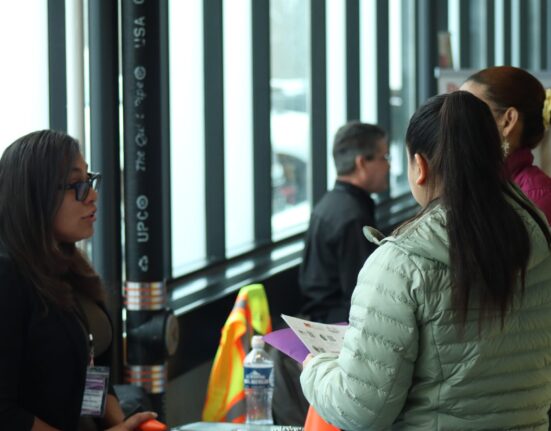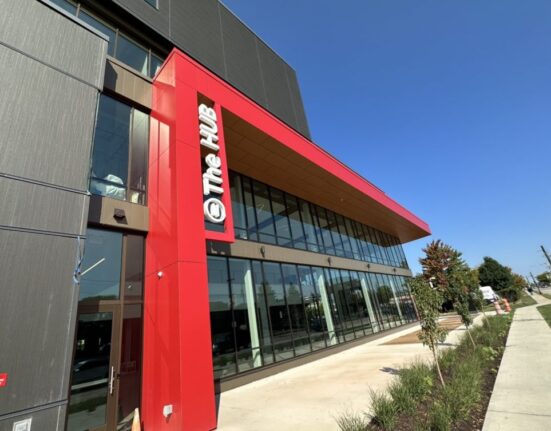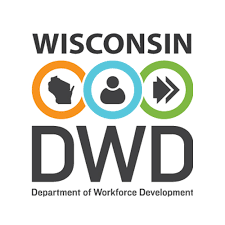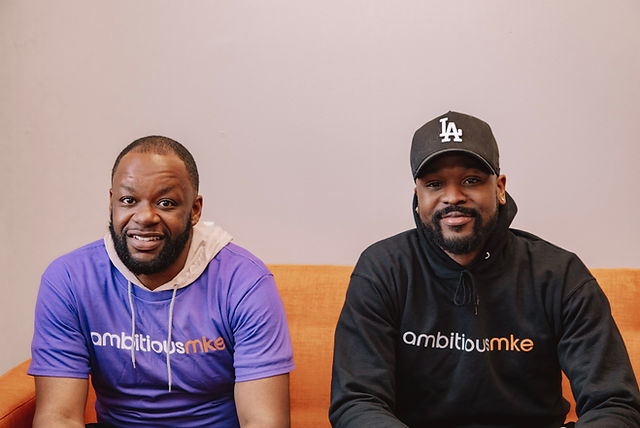
In the thick of the 2020 COVID-19 pandemic, professionals across the globe faced a similar challenge–finding a way to continue their work, away from the office. For so many, this meant working from home. However, between distractions and just not having a space conducive to their focus and productivity, working from home became a less than ideal solution for many.
Milwaukee native and entrepreneur Marcell Jackson shared this struggle, as he found himself working from home as well. Even with a home office, the self-proclaimed extrovert missed the social interaction of working with others in a physical workspace. He thought at the time, “If I’m experiencing this isolation and being unproductive working from home, I know other people are experiencing this as well.” He wished there was a space both he and others could go to not only work independently, but collaboratively as well.
Jackson initially tried out other coworking spaces throughout the city but did not feel as included culturally, and noticed a disparity: there were spaces downtown, near downtown or the suburbs, but nothing on the northside.
“It’s very important for me to have a more accessible location because in Milwaukee, most of the Black people live on the Northside,” he said. “I just kind of made that decision. . . . that led me to say, ‘hey, if you don’t see it, create it.” In September 2021, he did just that and opened the Ambition Center.
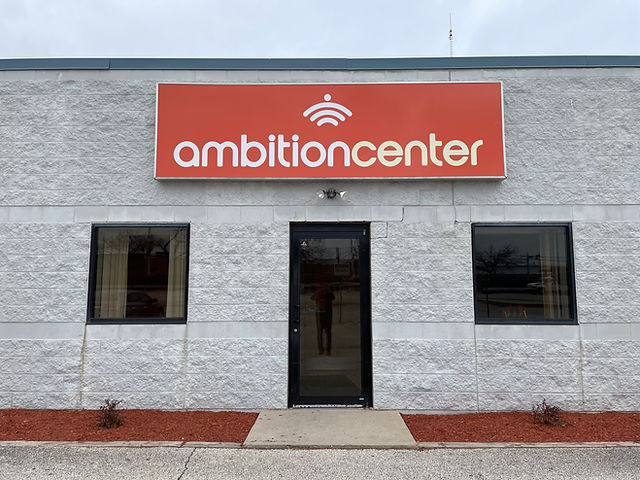
As the northernmost coworking space in Milwaukee, Ambition Center provides an opportunity for professionals to work, collaborate and share resources with the community. It’s a team effort, with his wife serving as Community Manager, and fellow office member Mark Peterson working as Brand Strategist. The center offers both desks and offices for members to use for their business, and also provides community members the opportunity to rent out the space for team meetings, workshops and events.
About one month into the center’s opening, Jackson became a recipient of the state-funded Bounceback Grant. Being about 90% self-funded, the $10,000 award gave him the opportunity to help offset startup costs and operating expenses, and also fund cosmetic work for the building, in order to make it a functional space conducive to members’ work.
For his application, he needed a certificate of occupancy, which he already had. He also spoke to the city to ensure that coworking spaces could qualify if it is a dedicated space or in a commercial corridor. He received no’s a few times, but finally got a yes. Another requirement included a letter of support from an organization. He received his from Riverworks Development Corporation.
He then had all of his members who had a permanent space apply for the grant as well. Two of them had already attempted the process but had stopped due to it being too complicated. He not only helped them complete their applications but was also encouraged to hold a seminar on how to access the grant.
Though he was happy to help, he did ponder why the state was not providing such resources.
“They should probably be doing that, having conversations just to make sure that those funds are used, because it’s all through federal funding,” he stated. “So once it’s gone, it’s gone. And it was in response to COVID, so not sure if we’re going to see that again.”
In May 2022, five of his occupants were awarded the grant. One of those recipients was Teresina Simmons, RN. She used the grant for her business Regal Aspire, LLC as she was in the process of expanding. Founded by Simmons in 2015, the company’s goal is to help pregnant women with resources and information to assist them on their journey. To add more layers to what the company can provide, she became a CPR instructor, CPRF instructor, doula, doula trainer and community health worker. At the end of 2021, she started her nonprofit arm, Regal Family Services Incorporated, which she uses to partner with other organizations in the nonprofit space. Simmons also works for the Wisconsin Association for Perinatal Care as a support specialist.
With so many professional hats to wear, she needed a coworking space to give attention to them all. Having a separate workspace was a must for the mother of nine.
“That space for me is really somewhere where I can just focus on all things business, all things Regal Aspire, all things Regal Family Services, Inc. all things my corporate job,” she said. “It’s a way where I can still maintain my sanity as mom, but still get the stuff that I need to get done, done.”
Although all of the grant recipients were able to use the award to fund important aspects of their respective businesses, just one month later, the state implemented a requirement that grantees must occupy a space of at least 400 square feet, which essentially made all of Jackson’s offices ineligible. For reference, his event space is about 534 square feet.
“The grant is supposed to help spark businesses to expand, (help with) operational costs and (move from working) out of your home into a commercial space. What does that look like versus traditionally getting a long term lease and getting your own building?”
He said the application process became progressively harder, as well.
“People in the city are hurt the most by it,” he remarked. “It’s a statewide grant, right, so if you’re in any of the more rural Wisconsin areas, you can find something 400 square feet, dirt cheap and you’ll be fine.”
He spoke to a few other organizations to see if the 400 square foot requirement might be waived, or if the state would make an exception, but they did not. He explained how the new requirement made a significant impact.
“It’s a more systemic issue,” he said. “A lot of my clients are Black business owners. There’s a little bit of mistrust when it comes to monies, especially from the state, from the city. And it seems very complicated to go and (apply for grants). Describing the overall grant application and awarding process, he said “It’s kind of bittersweet.”
Despite the challenges of the grant application process, Ambition Center has since made great strides. Within its first year, it hosted 54 events, providing 4 hours of free programming space for two local nonprofits, and offering two high school internships through the Earn and Learn program. Last December, the center was recognized as the only Black-owned coworking space to open in the nation in 2021.
This community-centered success reflects Jacksons’ goal with the space.
“I was intentional about making sure that this business is not about me, it’s about the people. it’s about the members, it’s about all of that,” he said.
As he looks towards this second year, he said, “My biggest things are to grow the amount of creatives and freelancers memberships, and then increase corporate partnerships from members. Because that gives them exposure and access. So how do we go and leverage different sponsors and corporate partnerships to just improve small black owned businesses? So absolutely, that’s the big thing.”


